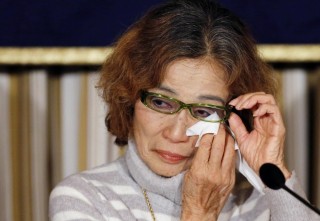Loading
Search
▼ International cooperation seek to rescue Japanese citizens taken hostage
- Category:Other

THE JAPAN NEWS
Although time is running out before the expiration of the deadline set by terrorists to pay the ransom demanded in their despicable video message in which they threatened to kill two Japanese citizens, the government must do its utmost to find ways of rescuing the captives through cooperation with a wide range of other countries concerned.
In the hostage crisis believed to involve an Islamic extremist group that calls itself the Islamic State, the government has thrown its utmost efforts into information gathering and attempts to contact the culprits to secure the release of the two Japanese.
Prime Minister Shinzo Abe and Foreign Minister Fumio Kishida have been persisting in calling for cooperation from top leaders and foreign ministers of the United States, European nations and Middle Eastern nations through direct talks with them and telephone calls over the crisis.
The deadline by which the extremists say they will slay the Japanese should ransom not be paid is considered to be sometime on Friday afternoon. The government is strongly urged to make the best possible use of the country’s various diplomatic channels for negotiating with the perpetrators through possible intermediaries close to the Islamic State group.
The world will be watching how Japan acts in dealing with the terrorist group’s demands for $200 million, the equivalent of about ¥23.6 billion.
In the 1977 hijacking incident of a Japan Airlines jet by the Japanese Red Army in Dhaka, the capital of Bangladesh, Japan paid $6 million in exchange for the release of the people taken hostage, incurring strong criticism from the international community for adopting a cowardly attitude toward the militants. In the hostage-taking incident victimizing Japanese citizens in Kyrgyzstan in 1999, there was a rumor that the Japanese government might have also paid ransom.
In the talks in London among Japanese and British foreign and defense ministers, or the 2-plus-2 meeting, on Wednesday, British Defense Secretary Michael Fallon was quoted as advising there will be “consequences if we do not act strongly now,” prodding Japan to maintain a stern, uncompromising posture regarding terrorism.
Off-the-mark anti-Abe blast
According to a report released by the United Nations, the Islamic State group has obtained between $35 million and $45 million in ransom over the past year. The demand this time stands around five times those figures.
Should Japan yield to the ransom demand and make the payment, the money would be used by the terrorists to fund their activities. Doing so would also lead this country to be regarded as a nation prone to giving in to intimidation, resulting in Japanese nationals being targeted by terrorists in all parts of the world.
Worrisome in this connection is the fact that off-the-mark criticism is being raised by some in the opposition camp against the Abe administration, as if Abe should be held responsible for the hostage crisis — the opposition party members claim his latest tour of the Middle East likely angered the terrorists.
The premier’s visit to the Middle East was to help deepen Japan’s cooperation with countries dealing with Middle Eastern problems, so as to boost Japan’s contributions to the region’s peace and stability.
Abe’s pledge of $200 million to support countermeasures against the Islamic State group involves humanitarian support in such fields as providing food and medical services to refugees within Iraq and to those who have fled into neighboring countries.
The accusation on the part of the terrorists in the ransom video against Abe of “providing money to kill Muslim women and children and destroy homes” is utterly misguided.
One of the two Japanese hostages is Kenji Goto, a journalist who has energetically engaged in covering such people as women and children who have suffered in the conflict-ridden areas.
The Japan National Press Club has issued a statement calling for the release of the two Japanese, condemning the terrorists for “jeopardizing the freedom of the press.”
The government must clearly convey these facts scrupulously and repeatedly through media outlets in the United States, Europe and the Middle East.
- January 23, 2015
- Comment (0)
- Trackback(0)

